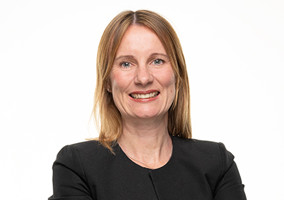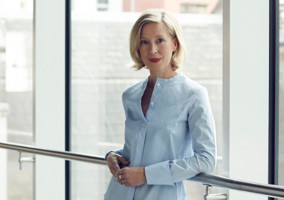Cancer Research UK aims to increase the proportion of its staff from ethnic minority backgrounds, under plans announced yesterday.
The charity’s first equality, diversity and inclusion (EDI) strategy has set a target to ensure 16% of staff – around one in six employees – are from ethnic minorities by the end of 2023.
The figure is currently 13.6%, up from 11% three years ago.
The strategy document shows that the proportion of ethnic minority staff in the charity’s most senior roles has fallen since 2018.
Cancer Research UK, the largest fundraising charity in the country, said it will publish annual updates on its progress on the strategy.
‘Less likely to feel like they belong’
The document said that, based on discussions within the charity, “the majority [of colleagues] who come from a similar background have an inclusive experience”.
However, “people who come from different backgrounds, such as people who are from an ethnic minority background, who identify as LGBT+ or are older, are less likely to feel like they belong”.
It pledged to increase the proportion of ethnic minority staff at the charity. The strategy document also acknowledged that the proportion of ethnic minority staff in top jobs had dropped in recent years, but the charity promised to increase that figure.
The charity’s goals
The charity said that its EDI strategy aims to, among other goals, develop “a more diverse and inclusive research community” through its funding, realise greater diversity in Cancer Research UK’s governance and leadership, and work with people in ways which are “inclusive, relevant and accessible”.
The document also said that the organisation is committed to “become an anti-racist charity” and treat people “with dignity and respect in every interaction”.
The proportion of women working as researchers with the charity has nearly doubled in the last two years, the document said, and pledged to maintain the current 50/50 gender balance in the most senior jobs.
In 2019, after announcing plans to be a “sector leader” on EDI, the charity changed its work with one commercial partner so that “ring girls” at fundraising boxing events swapped revealing outfits for evening gowns.
Charity Research UK boss: ‘We have a critical role to play’
Michelle Mitchell, the charity’s chief executive, wrote in the foreword to the strategy: “Cancer Research UK exists to beat cancer, and beating cancer means beating it for everyone.
“Cancer doesn’t exist in a vacuum.
“The factors that determine which groups in society are hit hardest also have a role to play in who is most likely to get cancer, and to die from it.
“These factors are complex, they are deeply woven into the fabric of our society – and they can’t be ignored.
“As the largest independent funder of cancer research in the world, we have a critical role to play in closing these gaps – and to create an inclusive, diverse, thriving community of cancer researchers.”
In a separate statement Mitchell added: “I’m personally committed to leading this change for our charity.
“I am firm in my belief that taking the actions set out in this strategy will make Cancer Research UK a stronger and higher performing charity, and will enable us to make faster progress against our ambition of reaching three in four people surviving cancer by 10 years or more by 2034.”
Related articles











